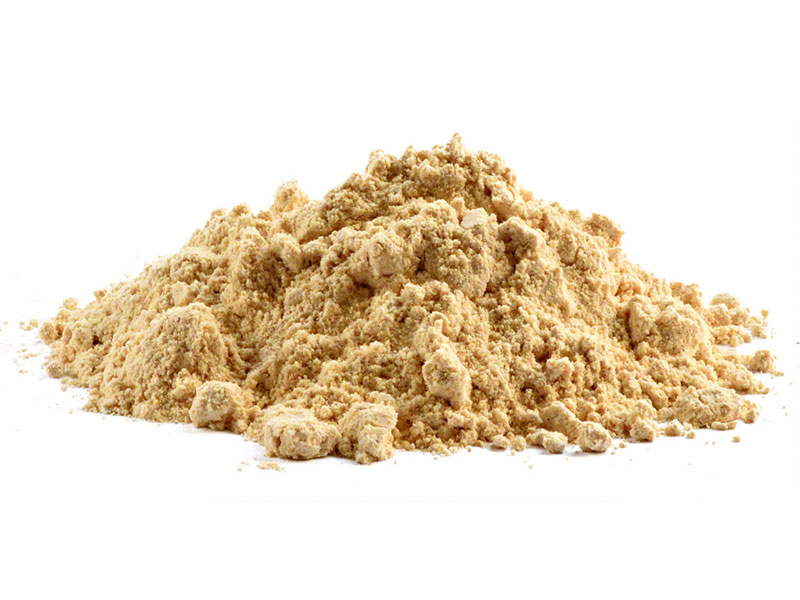Table of Contents
Sugar is one of the most widely consumed ingredients in the world, but it also has many negative effects on health, such as obesity, diabetes, heart disease, and tooth decay. Many people are looking for alternatives to sugar that can satisfy their sweet tooth without compromising their well-being. In this article, we will compare organic allulose sweetener with other organic sweeteners, such as stevia, erythritol, honey, and maple syrup, and discuss their benefits and drawbacks.
What is Organic Allulose Sweetener?
Allulose is a naturally occurring sugar that is found in small amounts in fruits, such as figs and raisins, and in some plants, such as wheat and maple. It has the same chemical structure as fructose, which is the sugar in fruits, but it is metabolized differently by the body. Unlike fructose, which is absorbed and converted into glucose, allulose is mostly excreted in the urine without being used as energy. Therefore, allulose has very few calories (about 0.4 calories per gram) and does not affect blood sugar levels or insulin response. It also has a similar taste and texture to sugar, making it a suitable substitute for baking and cooking.
Organic allulose sweetener is a form of allulose that is derived from organic sources, such as organic corn or organic tapioca. It is produced by enzymatic conversion of fructose into allulose, followed by purification and crystallization. Organic allulose sweetener is certified by the USDA as organic, meaning that it is free of synthetic pesticides, herbicides, fertilizers, and genetically modified organisms (GMOs).
Benefits of Organic Allulose Sweetener
Organic allulose sweetener has several advantages over sugar and other sweeteners, such as:
- It has a low glycemic index (GI) of 0, meaning that it does not raise blood glucose or insulin levels. This can help prevent or manage diabetes, metabolic syndrome, and obesity.
- It has a low caloric value of 0.4 calories per gram, compared to 4 calories per gram in sugar. This can help reduce calorie intake and weight gain.
- It has a high digestive tolerance, meaning that it does not cause gastrointestinal distress, such as bloating, gas, or diarrhea, unlike some sugar alcohols, such as erythritol or xylitol.
- It has antioxidant and anti-inflammatory properties, meaning that it can help protect the cells from oxidative stress and inflammation, which are linked to aging and chronic diseases.
- It has a prebiotic effect, meaning that it can stimulate the growth of beneficial bacteria in the gut, which can improve digestion, immunity, and mood.
- It has a similar taste and texture to sugar, meaning that it can be used in a 1:1 ratio in recipes that call for sugar, without altering the flavor or quality of the food.
Drawbacks of Organic Allulose Sweetener
Organic allulose sweetener also has some disadvantages, such as:
- It is relatively expensive, compared to sugar and other sweeteners. A 12-ounce bag of organic allulose sweetener costs about $10, while a 4-pound bag of organic cane sugar costs about $6.
- It is not widely available, compared to sugar and other sweeteners. It can be found online or in some specialty stores, but not in most supermarkets or convenience stores.
- It may cause allergic reactions in some people, especially those who are sensitive to corn or tapioca, which are the main sources of organic allulose sweetener. Symptoms may include hives, itching, swelling, or difficulty breathing.
- It may interact with some medications, especially those that affect blood sugar levels, such as insulin or metformin. It is advisable to consult a doctor before using organic allulose sweetener if you have diabetes or take any medication for it.
Comparison with Other Organic Sweeteners
Organic allulose sweetener is not the only option for those who want to avoid sugar and enjoy a natural sweetener. There are other organic sweeteners that have different properties and effects on health. Here is a brief comparison of organic allulose sweetener with some of the most popular organic sweeteners:
- Stevia: Stevia is a plant-based sweetener that is extracted from the leaves of the stevia plant. It is about 200 times sweeter than sugar, so a little goes a long way. It has zero calories and zero GI, making it ideal for diabetics and weight watchers. However, some people may not like its bitter aftertaste or its potential impact on hormone levels and fertility.
- Erythritol: Erythritol is a sugar alcohol that is derived from corn or other plants. It is about 70% as sweet as sugar, but has only 0.2 calories per gram and a GI of 1. It is well tolerated by most people, but may cause digestive issues in some, especially in large doses. It also has a cooling effect in the mouth, which may not suit some foods or drinks.
- Honey: Honey is a natural sweetener that is produced by bees from the nectar of flowers. It is about 50% sweeter than sugar, but has about 3 calories per gram and a GI of 50. It has some antioxidants, minerals, and enzymes, but also some fructose, which can be harmful in excess. It also has a distinctive flavor and color, which may not suit some recipes or preferences.
- Maple syrup: Maple syrup is a natural sweetener that is made from the sap of maple trees. It is about 60% as sweet as sugar, but has about 3 calories per gram and a GI of 54. It has some antioxidants, minerals, and phytochemicals, but also some sucrose, which can be harmful in excess. It also has a distinctive flavor and color, which may not suit some recipes or preferences.
Conclusion
Organic allulose sweetener is a new and promising alternative to sugar and other sweeteners. It has a low caloric value, a low glycemic impact, and a similar taste and texture to sugar. It also has some health benefits, such as antioxidant, anti-inflammatory, and prebiotic effects. However, it also has some drawbacks, such as high cost, low availability, and potential allergic reactions or drug interactions. Therefore, it is important to weigh the pros and cons of organic allulose sweetener and other organic sweeteners before choosing the best one for your needs and preferences.

